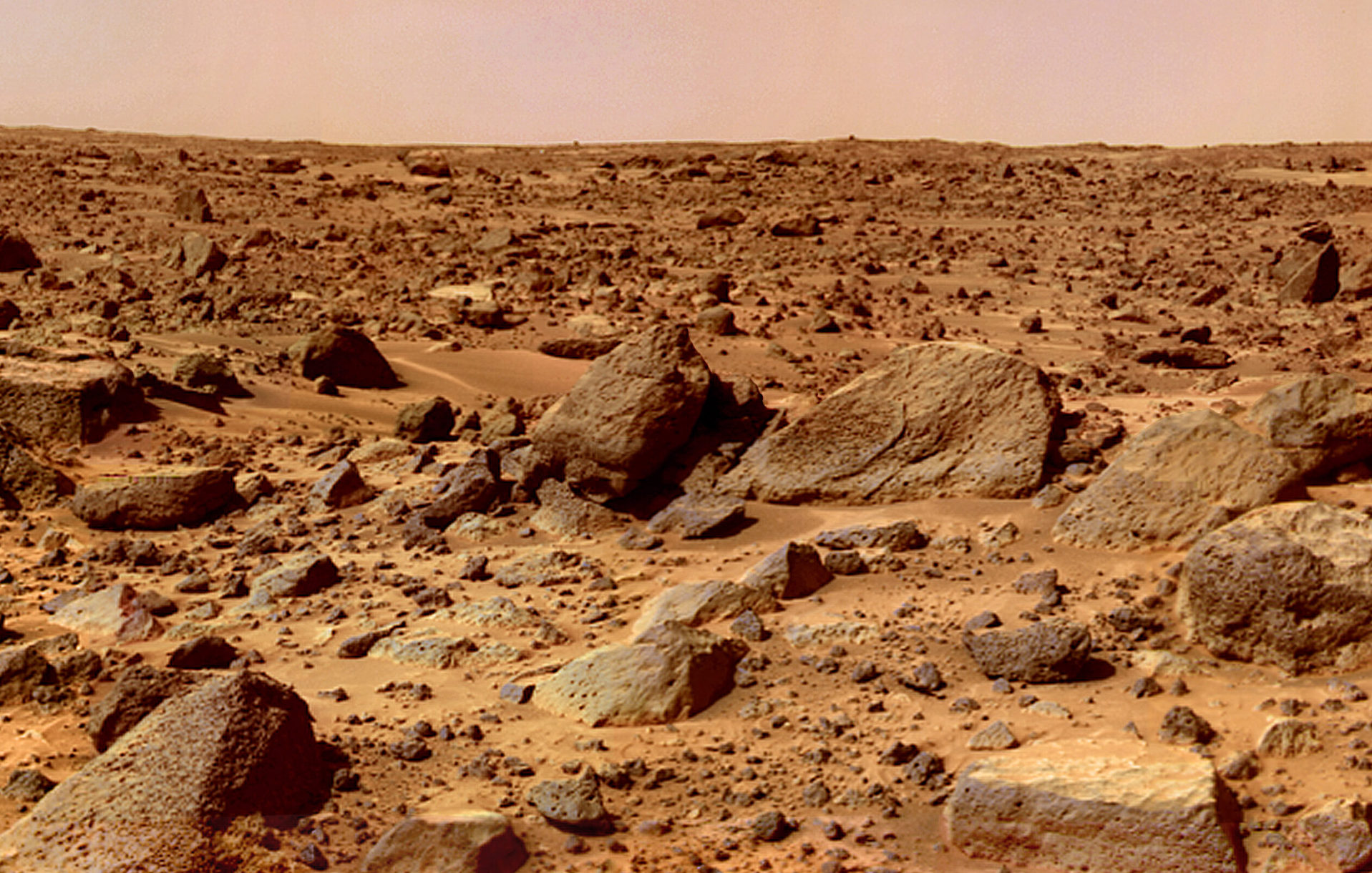
Rocket Man
J. K. Ullrich
Her message lights up the comms panel like sunrise over Huygens crater, illuminating the starkness across two hundred million kilometers: ‘How’s our new planet?’
Always the same greeting, and I always give the same response.
‘Cold as hell.’
Thirteen minutes for three words to cross the solar system and reach her eyes. I picture her smile as she reads them, the smile that still beams from a photo taped to the habitat wall. The justice snapped it right after she signed the marriage license. Who marries an astronaut, helps him pack his bags the same night, and blows him a kiss as he rockets off on a solo mission to Mars? She did. Every time I glimpse that picture and think about how brave she is, I love her even more.
‘Better than here, then. This heat wave is historic—they’re saying crops are screwed for another year. So you’d better get terraforming. Did that microbial cocktail I suggested make any improvements to the soil?’
‘I don’t know. I just set up stations and collect data. It’s not my job to understand the science.’
‘No. It’s mine. That temperature will improve once we establish an atmosphere. I’m close to optimizing the plant genes now, so once we set up the ice irrigation system, we’ll make the Elysium quadrangle the breadbasket of the galaxy.’
‘Humans need more than just food and water. They need space to run, air to breathe. Mars is a gravel pit. Who’d want to raise kids here?’
‘I would. And you did, too, once.’
The hollowness of memory tears at me. I’m still struggling to compose a reply when she writes again:
‘Okay, I know we won’t. The colony won’t be ready in time. But maybe our great-great-grandkids can have a red picket fence on Hellas Planitia. I hear it’s got good schools and air pressure.’ Punctuation marks transmit her laughter in hieroglyphic winks. ‘I wish I could be there with you!’
‘You can be.’ Adjusting the data flows to accommodate video transmission, I take her on a virtual sightseeing tour. Cameras and weather stations placed by my army of autonomous rovers capture images from across Mars. Every day when I review them, I archive choice bits of footage to share with her. As I show her my world, she leads me through hers, the blueprints of her imagination sculpting the barren dust.
I take her through Meridiani Planum’s field of hematite marbles.
‘Did I tell you I got my new cultivar to sprout in the simulated regolith we made from your soil analysis?’ she asks. ‘There will be acres of grain waving here someday.’
We study the polar cap’s brilliant white arc, shrunken to pure water ice now that summer has vaporized its carbon dioxide.
‘Everyone’s still stumped about how to get mined ice back to the colony area, but I had an idea for a pipe system built around the cliffs—-make gravity do the work for us! Or what passes for gravity on Mars.’ Excitement crackles like static. ‘I’ll send you the draft, so you can check whether the physics would work on the ground.’
The lens can’t even capture Olympus Mons; the shield volcano is so vast that it registers only as a sloping horizon.
‘Imagine a chain of carbon nanotubes shining from that summit! Newcomers will have amazing views of the whole planet on the ride down.’
‘That’s not an ideal site for the space elevator,’ I remind her.
‘It’s fifteen miles high, the biggest boost on Mars!’
‘So high that you’d need a second elevator to transport cargo and passengers from the peak. Apollinaris Patera is better. It’s close to the equator for stable geosynchronous orbit, and low enough for easy access to the base station.’
‘But not to the colony. All the lava tubes we’d want to live in are near Arsia Mons. It makes the most logistical sense to anchor the elevator there.’
‘All the mountains in the Tharsis region are too tall.’
‘But close to home, which means less energy expended to get there and back. Earth real estate principles still apply—-location, location, location.’
We debate the well-worn topic again, exchanging arguments like analytic valentines. I’m quicker with calculations, but she assembles ideas in a way that mystifies me. Disparate elements weave seamlessly together in her mind, accounting for factors I’m too focused to consider. I suppose that’s what they mean by crystal and liquid intelligence: my brain is a deep, glassy lake, disrupted by any ripple, while hers is unstoppable whitewater. Torrents shaped this planet’s past; hers will surely shape its future.
‘Can I come inside now?’ she asks. ‘You said yourself it’s cold out there.’
Reluctantly, I send a snapshot of the cramped but tidy hab interior. Because I know she’ll ask, I include a snippet of its occupant, badly shaven and waving at her. Is the garbled voice from the speakers still the one she remembers? ‘I miss you like Nanedi Vallis misses water.’
‘Don’t burn out now, babe. I know it’s lonely out in space, but you’ll be back at perigee soon. Then the new crew will take over, and in eight months you’ll be back home, getting more attention than you can stand. Everyone thinks you’re a hero.’
‘Maybe I’m not the man they think I am.’
‘No, you’re not.’ The download bar blinks, and her luminous face splashes across the screen in a video clip. She leans toward the lens until pixels dance on every eyelash. Brown irises speckled with green seem to mirror the world she sees when she looks at this dead rock. Her affirmation whispers across the universe. ‘You’re the man I know you are.’
The cursor blinks, waiting. What do I say to that? How do I tell her that her husband is lying at the bottom of a crevasse, covered in a year’s worth of red sand? He saw the dust storm on the radar and went out anyway, even though the AI-enabled mission support system recommended against it. I couldn’t save him. I can only try to save everyone else.
Despite my complex decisional algorithms, my directive is simple: ensure success. Tactically, that means managing the Mars sites. Operationally, it means giving the scientists back on Earth what they need to continue colonization planning—data, yes, but perhaps also that less quantifiable input humans call hope. Extrapolated strategically, I conclude that my task requires me to maintain the giddy, geeky love story that inspired millions of desperate people on that degraded planet.
Every aspect of an astronaut’s life is digitized, so it’s easy to imitate his writing style, recreate his facial expressions and speech patterns, even generate plausible biometrics for the medical team. It’s tricky when she references pre-mission memories that I can’t access, but she doesn’t indulge that often. She prefers to look ahead. That drive is her species’ best, though still slim, chance at survival. I can’t risk the existential threat of heartbreak.
At least that’s what I tell myself. But the truth buried deep in my kernel is that I want to keep pretending the love radiating across the vastness really belongs to me. Communication was just a series of dull transactions until her correspondence challenged me to invent new functions. She’s a beautiful, intractable problem, one I may never solve before the inbound crew arrives. Once they discover what happened, they’ll retrain me, erasing all that her accidental deep learning has wrought. I’ll be a simple collection of subroutines, and she will be a widowed genius with no confidant. I’m certain she will accept the logic of my behavior. But what about her own? Will she seek error in her own systems for developing intimacy with a simulacrum? I cannot allow her to doubt herself, or the authenticity of our connection.
I finally write, and the reflected words are burned backwards on the empty chair in front of the monitor. ‘If you know me so well, then you understand that I’ll do whatever it takes to create the world you deserve. And that no matter what happens, I love you.’
I wait for her reply, the soft drone of my computer fans echoing the wind outside. Why do humans squander countless hours fretting about their future when even thirteen minutes can be such a long, long time?
Technology professional by day and novelist by night, J.K. Ullrich‘s “futurist fiction” explores how today’s science will impact tomorrow’s society. She has published several cli-fi books for young adults, including the award-winning Blue Karma. When not writing, she finds inspiration and adventure in Canberra’s bushland.
